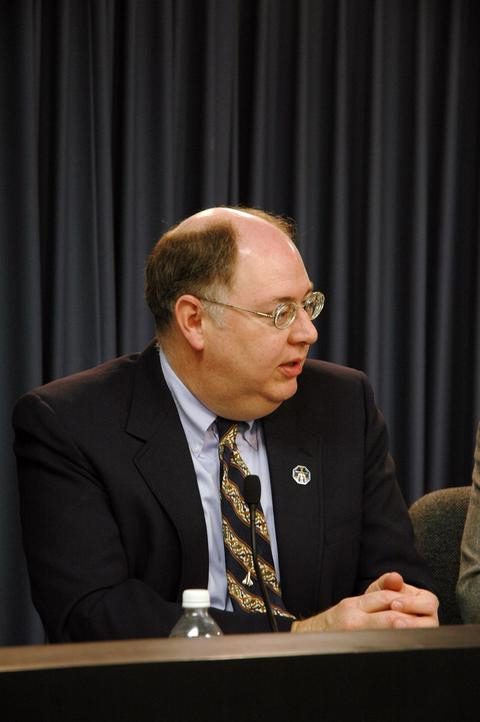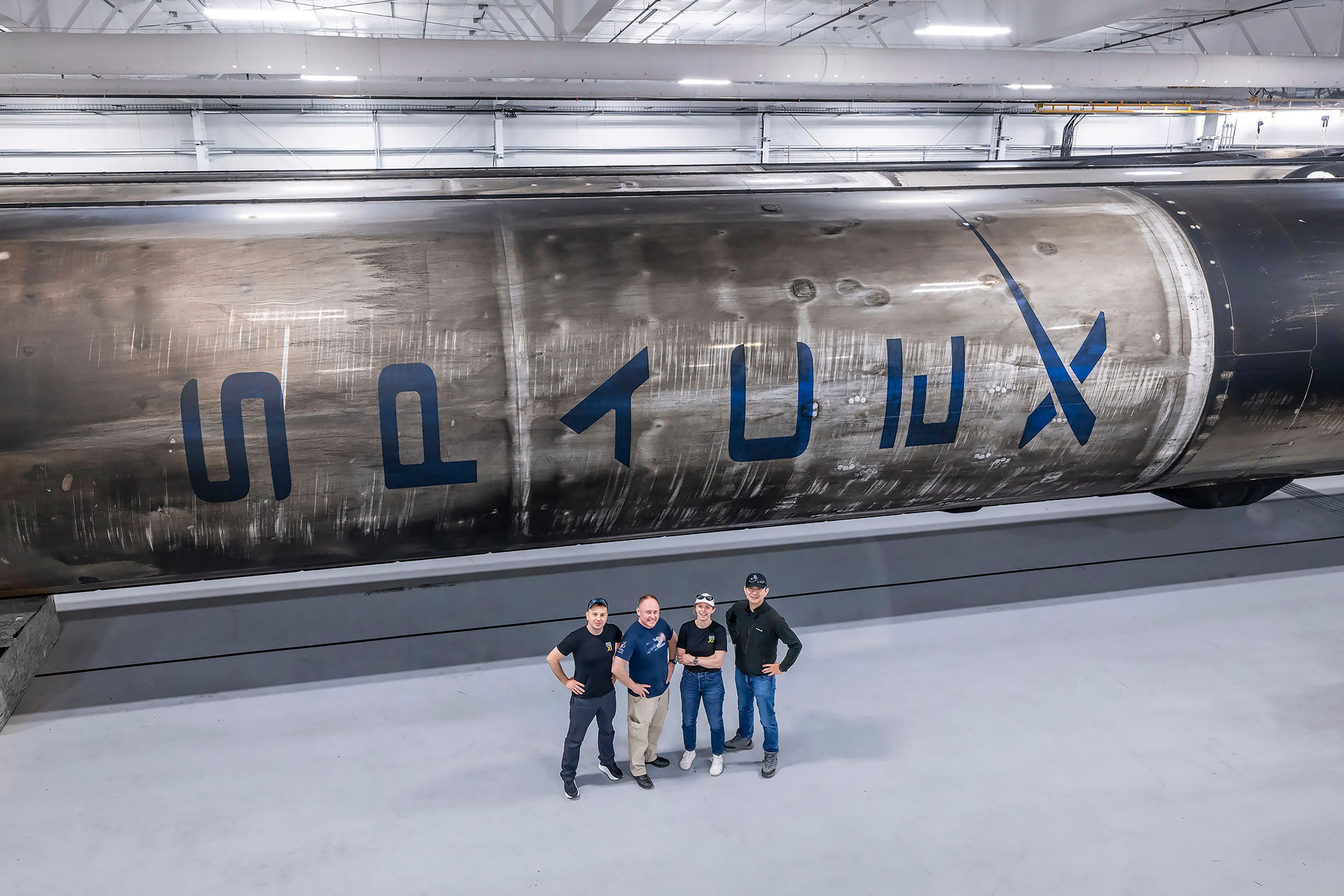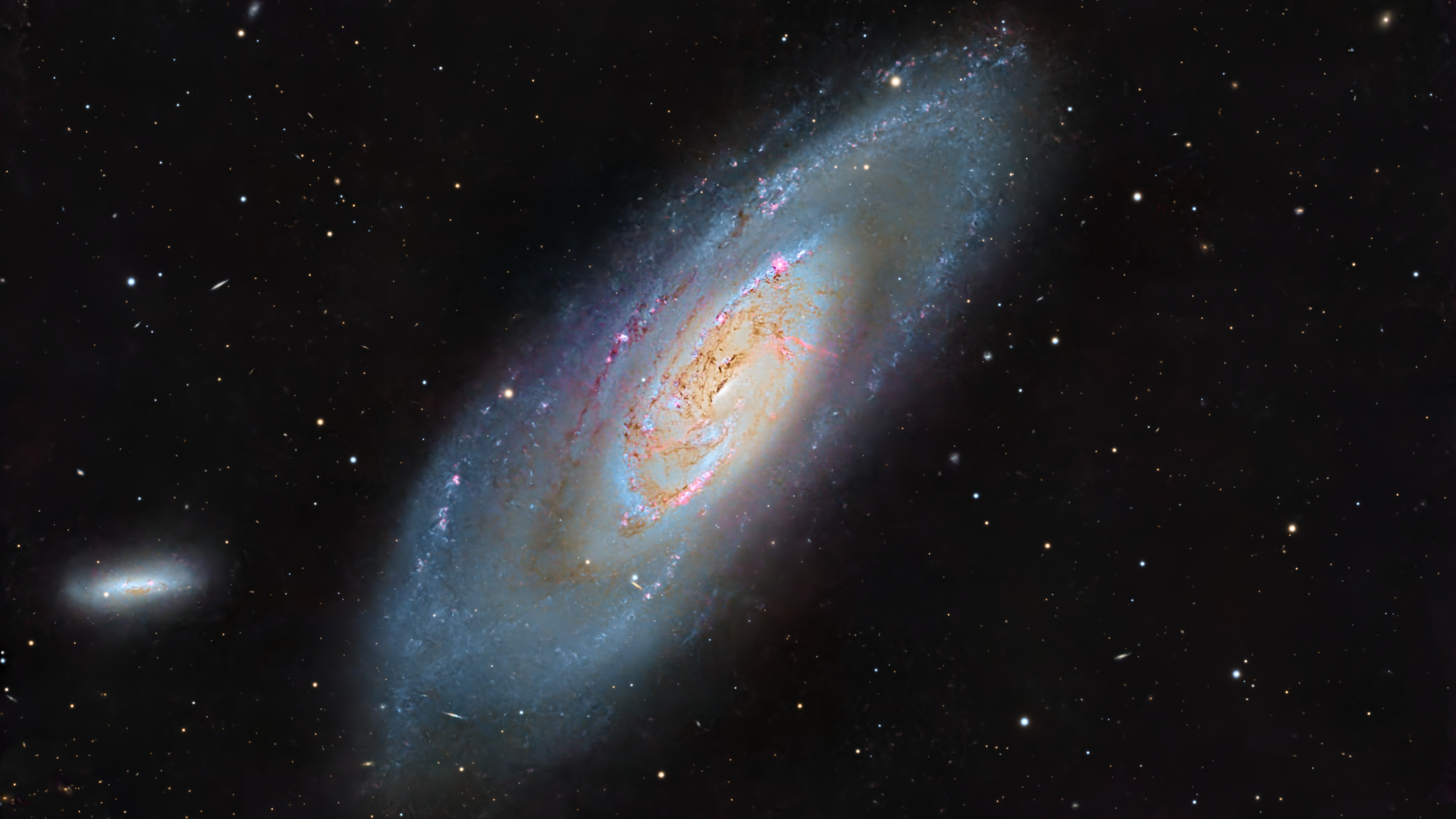Former Space Shuttle Manager Decries NASA's Requirements for Commercial Spacecraft

SANFRANCISCO ? The battle being fought behind the scenes between NASAofficialsand space industry executives over requirements for commercial crewtransportation burst into public view this month when NASA's formerspaceshuttle program manager warned that the conflict was "poised to killthe[commercial transportation] initiative in its infancy."
Wayne Hale,the former shuttle manager who left NASA in July to join SpecialAerospaceServices, a Boulder, Colo.-based consulting firm, compared therelationshipbetween the commercialhuman spaceflight industry and NASA to a "coming trainwreck."
Efforts tomaintain high safety standards have led to voluminous requirements forvehiclesdesigned to carry astronauts, Hale wrote. "Somewhere along the line, wehave crossed over the optimum point to ensure safety and just addedcost anddelay," he said on Nov. 14. [Top10 Private Spaceships Becoming Reality]
Halereferred to an Oct. 8 draft of the space agency's requirementsfor commercial crew transportation and services that wasposted on apassword-protected website.
In January,NASA plans to issue a request for information seeking industry commentson thedraft requirements, according to Phil McAlister, NASA's commercial crewplanning lead. The final requirements are scheduled to be completednext spring"after extensive review and comment by NASA and industry," McAlisteradded in written responses to questions.
Still,commercial space proponents said the initial draft demonstrates theresistanceof some NASA officials to the types of dramatic changes in oversightnecessaryto create a thriving commercial sector. "The document runs amind-numbing260 pages of densely spaced requirements," Hale wrote.
"Mostdisappointing, on pages 7 to 11 is a table of 74 additionalrequirementsdocuments which must be followed, in whole or in part. Taken alltogether,there are thousands of requirement statements referenced in thisdocument," he added. "And for every one NASA will require a potentialcommercialspace flight provider to document, prove, and verify withmassive amountsof paperwork and/or electronic forms. This, folks is the old way ofdoingbusiness. This is one of the major reasons why spaceflight is as costlyas itis."
Get the Space.com Newsletter
Breaking space news, the latest updates on rocket launches, skywatching events and more!
McAlistercountered those assertions, saying the space agency is striving "tomaximize safety and reliability" without burdening commercial firmswithunnecessary requirements that lead to higher development and operationscosts.
"Asimplistic page count" of the commercial crew requirements documentdoesnot "reflect the quality of the requirements," McAlister wrote,adding that most of the pages published include the rationale forrequirementsto show industry the intent of the requirements and give them "theflexibilityto meet the requirements in innovative ways."
What's more,the task being undertaken is extremely complex, McAlister wrote.
Space agencyofficials must evaluate a wide variety of factors to gain theconfidence thatmissions will be successful. Those factors include not only thecontractor'sflight vehicle, but also systems, operating conditions, missionplanning andflight crew training, McAlister wrote.
"NASAand the aerospace community have developed an outstanding complement ofdesignand human certification requirements, rules, and processes that cansubstantially enhance vehicle reliability, improve mission success, andmaximizecrew safety," McAlister added.
Beforeleaving NASA, Hale spent several months working on plans for thecommercialcrew initiative and promoting the idea that the effort should bemodeled on theNASA Launch Services program, which purchases expendable launchvehicles for scientificmissions.
The spaceagency should "do what the Launch Services Program does: require thatproviders have standards and follow them ? don't make them pickparticularprocesses or standards," he wrote.
Althoughthat is not the route NASA took, Hale wrote Nov. 17 that afterre-reading thecommercial crew requirements he realized that they are significantlyscaleddown from those of the Constellation program's OrionCrew Exploration Vehicles and the Ares I rocket.
In addition,the document states that many of the specifications and standards canbereplaced with alternatives that meet the intent of the language. "Tothecasual reader that sounds like a big change," Hale wrote."Unfortunately,it is not. Having to prove that an alternative standard is just as goodas thestandard NASA listed is an uphill battle ... I speak from sadexperience."
Still, Halewrote Nov. 17 that he regretted airing his concerns about thecommercial crewprogram because his comments provided ammunition for people to targetNASA orthe commercial human spaceflight initiative.
"Humanspaceflight is important to our nation and to the world," Hale wrote."Whetheror not commercial firms can actually succeed is still open; but NASAand theFederal Aviation Administration must walk a careful tightrope ofensuringsafety while not killing the enterprise with over-regulation."
The draftrequirements are "a step in the right direction, but hardlyrevolutionary,"Hale wrote. "That revolution is what NASA leadership must show theworkershow to accomplish."
The U.S.government did not always rely on voluminous specifications tosafeguard pilotsor astronauts, Hale said, citing requirements for the first U.S.militaryaircraft, which covered only 2.5 pages, and those of NASA's Geminicapsule,which were about 12 pages long.
"Simple,straightforward requirements and the flexibility to use good industrybasedstandards could allow commercial space flight to be as successful asthoseprograms or the NASA Launch Services program," Hale wrote. "But weare not on that path."
Haledeclined to comment for this story.
Spaceindustry executives and consultants involved in NASA's commercialtransportation initiative also declined to comment.
"Wecontinue to work with our NASA customer on their requirements," saidChrisChavez, spokesman for Denver-based United Launch Alliance, which isparticipating in NASA's Commercial Crew Development program under a$6.7million contract awarded in February.
- Top10 Private Spaceships Becoming Reality
- Photos:SpaceX's Dragon Space Capsule
- NASASeeks To Ease Doubts AboutCommercial Crew Support
Thisarticle was provided by Space News,dedicated to covering all aspects of the space industry.
Join our Space Forums to keep talking space on the latest missions, night sky and more! And if you have a news tip, correction or comment, let us know at: community@space.com.
Debra Werner is a correspondent for SpaceNews based in San Francisco. She earned a bachelor’s degree in communications from the University of California, Berkeley, and a master’s degree in journalism from Northwestern University. Debra is a recipient of the 1989 Gerald Ford Prize for Distinguished Reporting on National Defense. Her SN Commercial Drive newsletter is sent out on Wednesdays.









